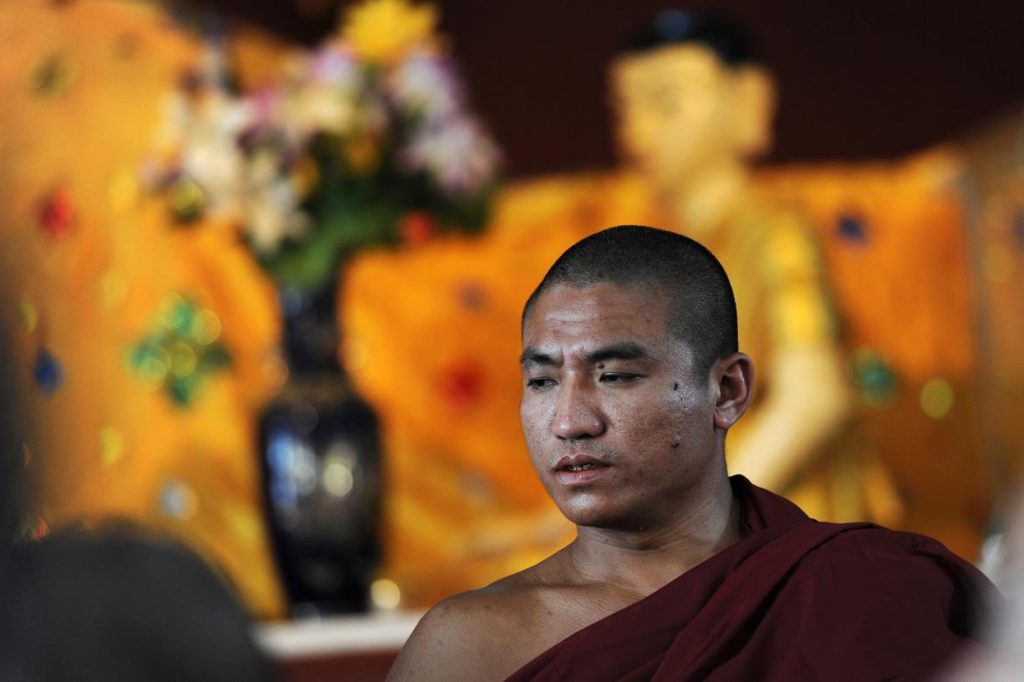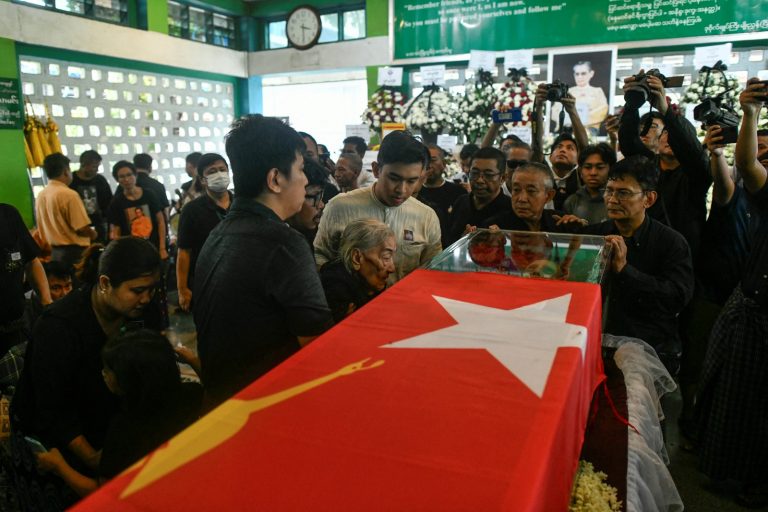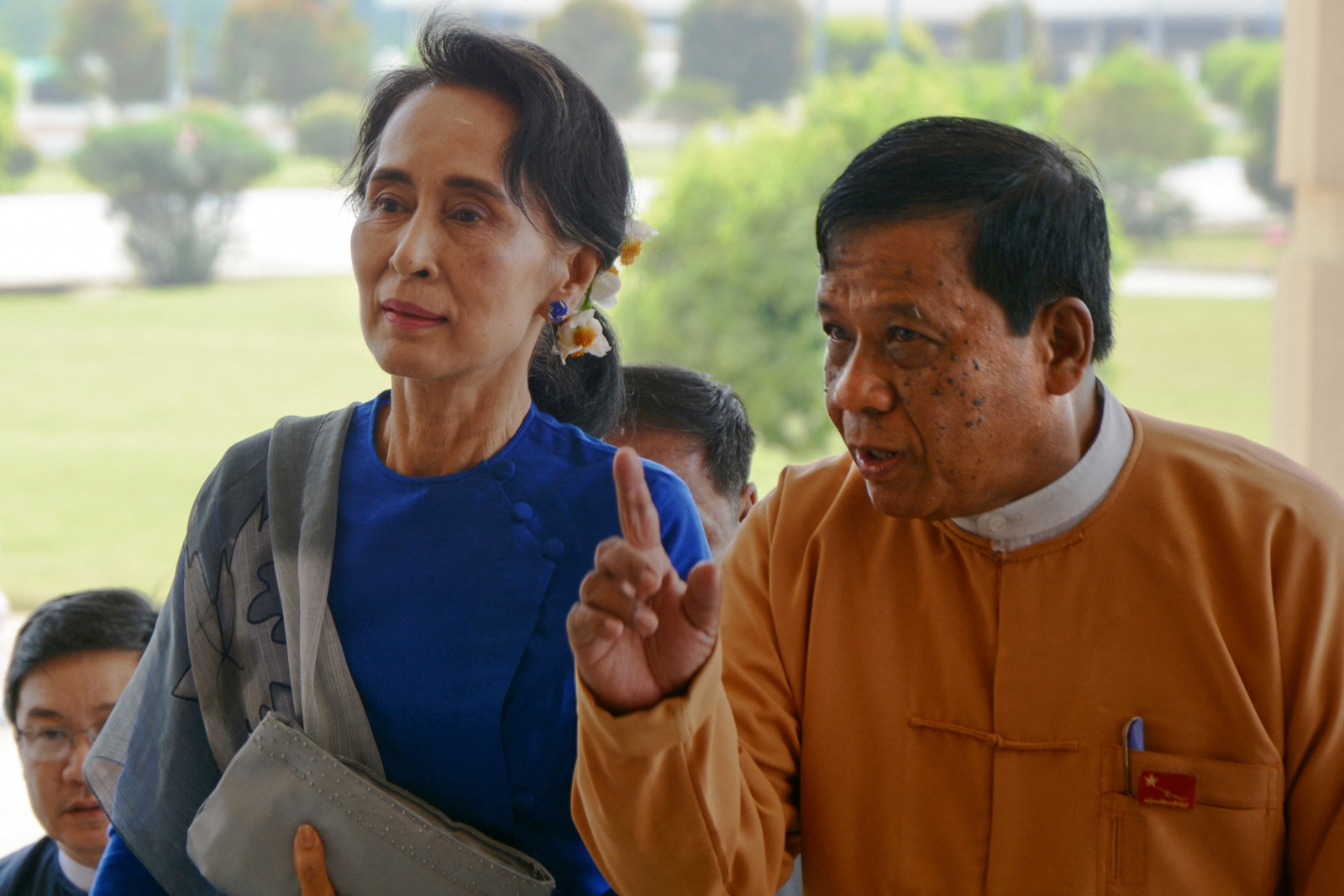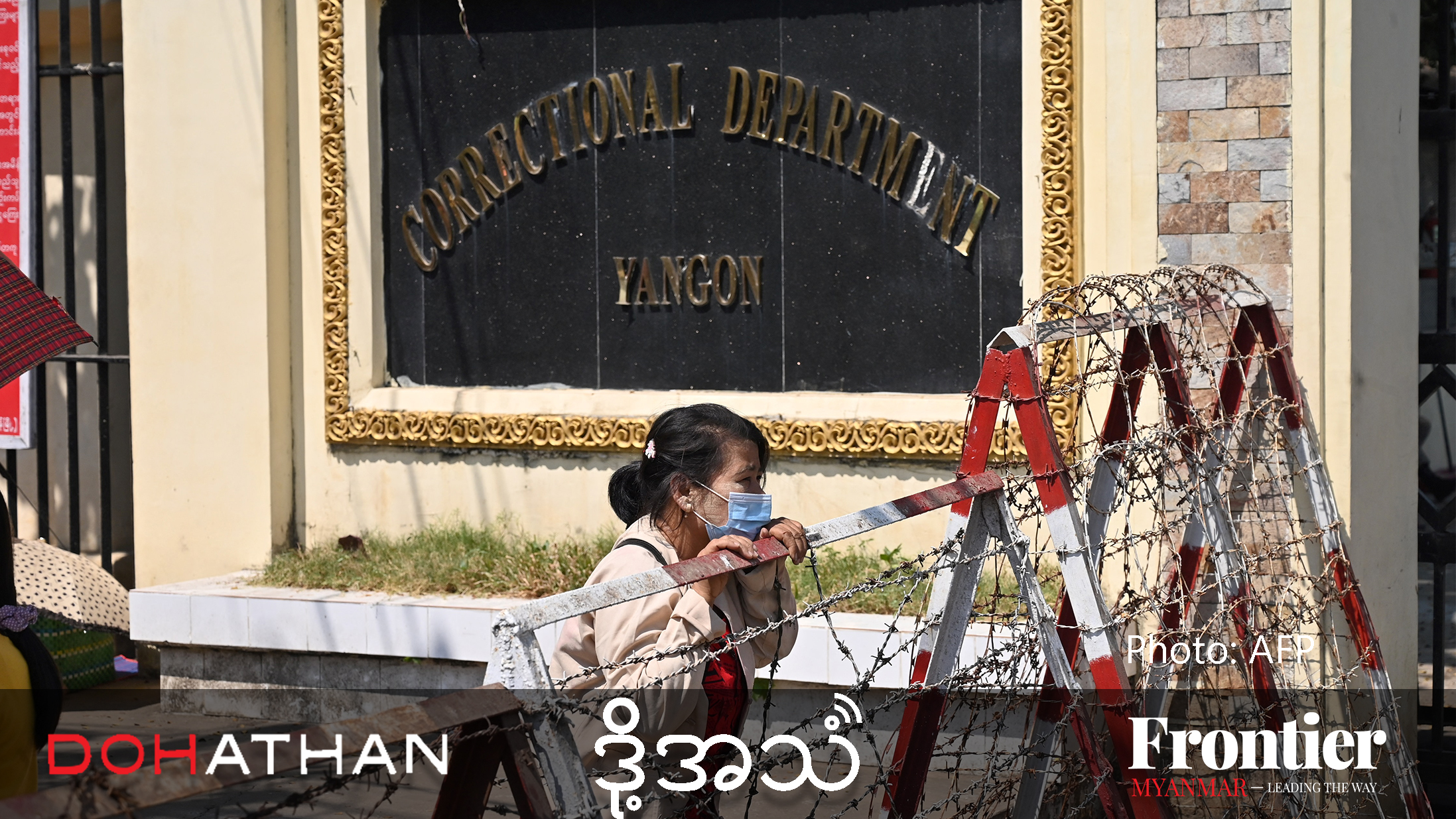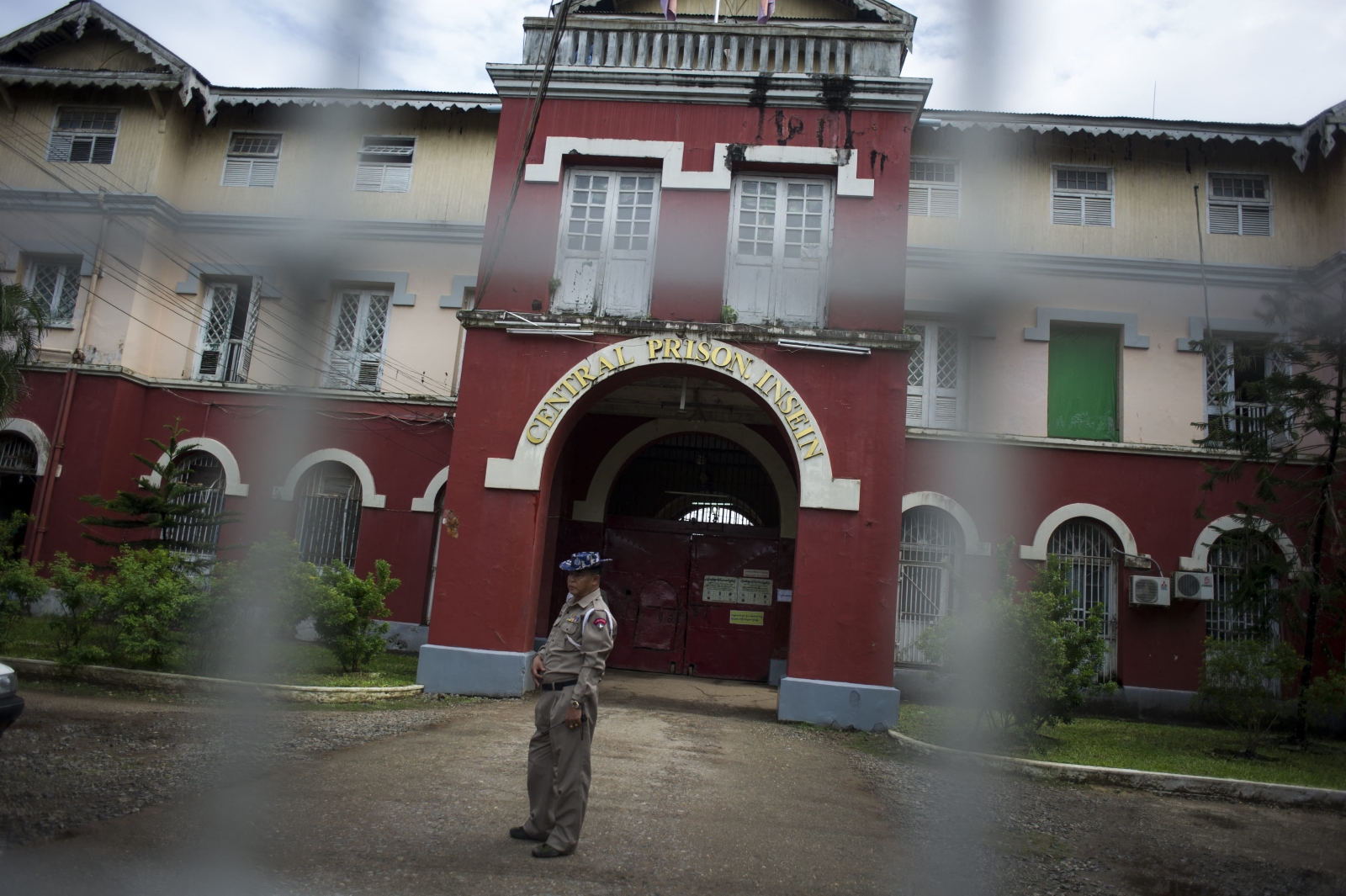YANGON — Six weeks after his arrest, U Nyi Nyi Lwin, better known by his ordination name U Gambira, has finally been formally charged for an alleged immigration offence and will face a maximum prison sentence of five years if convicted.
At a Thursday appearance in Mandalay’s Maha Aung Myay Township Court, his seventh since his arrest on January 21, U Gambira charged under Section 13.1 of the Immigration Act, which outlaws individuals from remaining in Myanmar after their legal entry expires.
U Gambira remains a Myanmar citizen, despite his 2007 imprisonment and subsequent decision to leave the country and take residence in Thailand. He had arrived in Myanmar through the Tachileik border crossing five days before he was apprehended in Mandalay.
In other developments during Thursday’s proceedings, U Gambira’s seventh bail application was denied by the presiding judge. When asked whether the court could facilitate access to health care for the accused — who suffers from post-traumatic stress disorder and a number of other complaints as a result of his incarceration between 2007 and 2012 — the judge suggested petitioning the Supreme Court.
Shortly after his arrest, his Australian wife Marie Siochana posted a photo on Facebook apparently showing U Gambira’s boarding pass for a January 16 flight from Tachileik to Heho Airport in Shan State, which bore a stamp showing the travel had been approved by immigration authorities in Myanmar.
Support more independent journalism like this. Sign up to be a Frontier member.
“He passed through Mae Sai immigration, Tachilek immigration and Tachilek airport immigration with no problems at all,” Ms Siochana told Frontier. “He is still a Myanmar citizen and holds a pink Myanmar ID card, which he was issued with a year or so after he got out of prison in 2012. Apparently it’s valid for 9 more years.”
She added that she believed the charges were “100 percent” politically motivated.
Ms Siochana was not permitted to testify at the two most recent court hearings before U Gambira’s appearance, despite a request from defence counsel Robert Sann Aung.
Vani Sathisan, an international legal advisor for the International Commission of Jurists who has been following the case, told Frontier it was unclear if any Myanmar national had ever been charged under Section 13.1 of the Immigration Act since the law came into effect in 1947.
“After 7 hearings, it is still unclear whether the Prosecution has been able to produce any evidence of a crime under 13.1 of the Immigration Act and whether this law applies to Myanmar citizens as well,” Ms Sathisan said.
“Not only is someone with severe mental disabilities detained and prosecuted, but he has had his application for bail repeatedly denied — despite submission to the Court of his medical records by counsel — because the judge believed the accused ‘seemed to be in good spirits and not showing any signs of ill health’,” she added.
U Gambira, who participated in the 2007 monk-led mass demonstrations known internationally as the Saffron Revolution, is one of Myanmar’s best known political prisoners. Since his release in 2012, he has struggled with a number of mental health issues as a result of torture and confinement suffered during his detention, for which he had been seeking treatment in the Thai cities of Chiang Mai and Chiang Rai.
“He has mental illness and the prison does not have the proper resources to deal with that,” Ms Siochana said on Thursday. “They don’t have a counselor, and the prison doctor is not a trained specialist in psychiatry… I don’t believe in a prison setting he will ever recover from his illnesses.”


